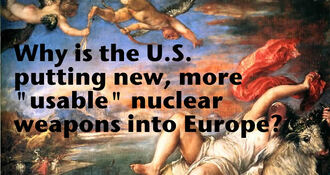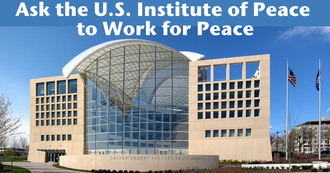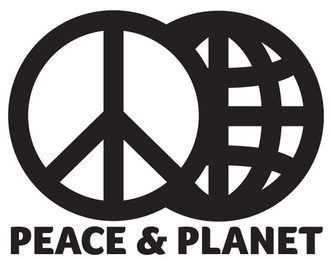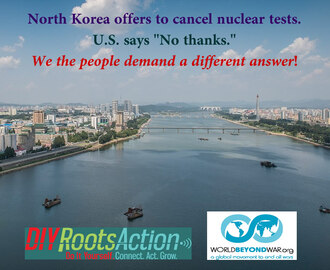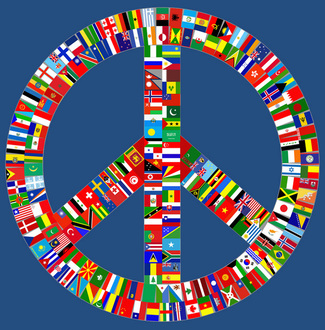- Featured
- Agriculture
- Anti-Corporate
- Antiwar
- Banking
- Budget
- Campaign Finance Reform
- Civil Liberties / Surveillance
- Civil Rights
- Economic Justice
- Education
- Elections
- Environment
- Government Accountability / Whistleblowers
- Gun Violence Prevention
- International
- Justice
- Law Enforcement
- LGBT
- Marijuana
- Media
- Nuclear
- Post Office
- Prisons
- Reform
- Retirement and Healthcare
- Taxes
- Torture
- Trade
- More
-
End the Manufacture of Weapons for War in WoodstockAmetek Rotron is Woodstock’s largest employer. Located in buildings just out of sight, off Rte 375, Ametek Rotron makes high-tech fans, ball bearings and other essential parts for weapons used to terrorize and kill people the world over. Here in Woodstock Ametek Rotron is the sole supplier of such crucial parts as the fuel density probe for Predator drones. Ametek Rotron makes parts for missiles, nuclear weapons and many other weapons of death and destruction. In 2015 Ametek Rotron had $2,603,158 in Pentagon contracts. As most of us in Woodstock support peace and not war, the signers below request that Ametek Rotron explore how to convert its manufacturing facilities to support peace and not war.123 of 200 SignaturesCreated by Ellen D.
-
Demanding Annual Chemical Toxicity Testing in all U.S. Public SchoolsThirty K-12 schools in New Jersey's largest metropolitan city, Newark, have officially been identified as contaminated sites by state and city officials. According to environmental experts, the sites contain high levels of lead, well past federal EPA's chemical release quota for emergency cleanup. In light of recent discoveries of lead-water contamination in Flint, Michigan, Newark officials have established a policy of routine water testing throughout the city. On their first go-around, they discovered that the water in 30 public schools, including 5 charter schools, was contaminated with lead. Since the discovery, Newark Mayor Ras Baraka and the school superintendent Christopher Serf have declared 30 public schools in a state of emergency. Each school morning, trucks filled with bottled water conduct drop offs to over 20,000 students, teachers, cafeteria staff and custodial so that they all have access to clean, usable water throughout the day. Lead is a heavy metal that has been federally regulated since the 1970s, once its properties were revealed to cause developmental defects and neurological degeneration. In Newark, New Jersey, 20,000 students in 30 different schools drink it each day. While we commend Newark officials for acting immediately upon discovery, we condemn them for their tardiness and years of neglect towards the health and safety of the children they are responsible for educating and protecting. Water quality experts estimate that Newark water banks have been severely contaminated for up to six years. According to some sources, the water contamination began in 2012, in the aftermath of New Jersey's most disastrous storm, Hurricane Sandy. Others claim that that presence of heavy metals like lead and mercury in Newark's water banks is a part of a larger problem, tracing back to over spills and cross-contamination during a storm in 2010. Newark students and parents are enraged. Having been left in the dark about years of water poisoning, and still, trapped in their current schools through the binds of former superintendent Cami Anderson's One Newark Program, Newark students are in an extremely dangerous and potentially deadly situation that they have no way out of. Most of the affected schools are considered "failing," and are set to close down while the buildings are to be sold to private contractors and incoming charter schools. Four of the affected schools are formerly public turned charter institutions. Three schools have been recently transformed into alternative schools for the misbehaved and special education institutions for the mentally challenged. And still --there is no official plan for cleanup. While bottled-water distribution companies maximize profits, and NJ city and state officials minimize responsibility, it is the students of Newark who bear the burden of years of lead-water poisoning. New Jersey Representative Donald M. Payne Jr. has developed plans to propose a nation-wide bill to Congress -- to create a federal budget for yearly toxicity testing and evaluation in public schools throughout the U.S. The legislation would require schools to test drinking water, including water from faucets used for food preparation, sinks in bathrooms, and water fountains. Testing would be required at least biannually at schools built prior to 1996 and at least annually at schools built in 1996 or after, when regulations were extended to restrict the amount of lead in school faucets. The TEST for Lead Act would also require local education agencies with jurisdiction over the schools to notify parents, the administrator of the U.S. Environmental Protection Agency, and the state within 48 hours if a level of lead that exceeds a lead-action level, as identified by the EPA, is discovered." - NJ Rep. Donald M. Payne Jr. Although water testing is a long ways from clean-up, and even longer from treatment -- it's a start towards recovery that lies within the means of the existing federal budget. It is imperative that we stand by NJ legislators in their primary initiatives towards health accuracy and ecological justice in Newark and vulnerable cities across the U.S. Sign this petition. Hundreds of thousands of students in Newark, New Jersey, Flint, Michigan, and a host of other cities are counting on you. "I align myself with New Jersey Representative Donald M. Payne Jr. in his proposal of the TEST for Lead Act, which ensures that annual toxicity testing is conducted in public schools, nation wide."5,875 of 6,000 SignaturesCreated by Jamani M.
-
Abolish War, Save Article 9The movement to maintain Article 9 is important because Article 9 is such a positive force for Japanese people and for other nations globally. What makes the movement even stronger is that the movement leaders also want to revise the constitution in their own image - that is, to make it a constitution of the 21st century removed from the influence of World War II. They are supported by important thinkers and activists such as Noam Chomsky, Akihiko Kimijima and Helen Caldicott who stress that Article 9 should be a role model for the world to follow. All emphasize that living in the nuclear age our survival is at stake. To embrace Article 9 is to support the United Nations mandate to abolish war and "turn your swords into ploughshares." But we must remain consistent over a long period of time. We must outlast big money lobby groups over a long time - and we must be very creative in our strategy. The public at large becomes quickly bored and apathetic unless the new movement is able to stimulate their imaginations and motivate them to take action in support of the protesters. Both General Douglas MacArthur and Prime Minister Kijuro Shidehara were very successful in motivating the voting public to embrace the new peace constitution in 1946. So in conclusion I truly believe there is hope for Article 9, but it will take hard work and consistency. Join hands, hearts and minds to support and promote this wonderful constitution.8 of 100 SignaturesCreated by David R.
-
No U.S. Nuclear Weapons in EuropeThe United States keeps nuclear weapons in Germany, the Netherlands, Belgium, Italy and Turkey, in violation of the Non-Proliferation Treaty (NPT), which bans the transfer of nuclear weapons from a nuclear weapon state to a non-nuclear weapon state. Now, the U.S. wants to upgrade its nukes in Europe, to make them "precision" and "guided," and therefore more likely to be used, even as tensions build between the United States and Russia. The U.S. plans to deploy newly designed type B 61-12 nuclear bombs. Instead it should remove existing nuclear bombs. The NATO strategy of so-called "nuclear sharing" is a violation of Articles 1 and 2 of the NPT. Those provisions state that every party to the treaty promises "not to transfer to any recipient whatsoever nuclear weapons or other nuclear explosive devices or control over such weapons or explosive devices directly, or indirectly" and also promises that every "non-nuclear-weapon State Party to the Treaty undertakes not to receive the transfer from any transferor whatsoever of nuclear weapons." The policy of placing U.S. nuclear weapons in Europe also violates local laws. For example, the German Parliament (the Bundestag) voted in March 2010, by a large majority, that the German Government should "press for the withdrawal of U.S. nuclear weapons from Germany."11,005 of 15,000 SignaturesCreated by David S.
-
Ask the U.S. Institute of Peace to Work for PeaceThe U.S. Institute of Peace (USIP) is a federal government institute created by a bill signed into law in 1984 by President Ronald Reagan and funded annually by Congress as well as sometimes receiving funding from the Department of State, the U.S. Agency for International Development (USAID), and the military.[1] The law states that the "Secretary of State, the Secretary of Defense, the Director of the Arms Control and Disarmament Agency, and the Director of Central Intelligence each may assign officers and employees of his respective department or agency, on a rotating basis to be determined by the Board, to the Institute." The Institute has never opposed a U.S. war and claims that it can only support things, not oppose them. But in fact, the law only forbids it from seeking "to influence the passage or defeat of legislation ... except that the personnel of the Institute may testify or make other appropriate communication when formally requested to do so by a legislative body, a committee, or a member thereof." Most U.S. wars, including the war on Libya, the newly revived war on Iraq (and Syria), and the drone wars on Pakistan, Somalia, and Yemen, have been launched without legislation. And, even if there were legislation involved, it would not be at all difficult for USIP to ask a single member of Congress to request its opinion, thereby freeing it to provide its views and its research. USIP makes no claim that it cannot provide the public with information on the negative results of U.S. wars; it simply fails to do so. The Institute in fact makes recommendations to Congress, including in formally presented testimony, it just recommends things like supporting the Syrian opposition, training and arming troops to fight both ISIS and the Syrian government, and creating a "no fly zone" in Syria, rather than working toward an arms embargo or aid or diplomacy.[2] The Institute has recommended diplomacy with Iran, and could do so in a dozen other cases, although its notion that weapons sales is part of diplomacy may be less than helpful.[3] The law requires that the USIP Board include 15 voting members, including the Secretaries of State and "Defense," the President of the National "Defense" University, and 12 members appointed by the President with the advice and consent of the Senate, and each having "practical or academic experience in peace and conflict resolution." The law also states that "No member of the Board may participate in any decision, action, or recommendation with respect to any matter which directly and financially benefits the member or pertains specifically to any public body or any private or nonprofit firm or organization with which the member is then formally associated or has been formally associated within a period of two years." There are a number of mechanisms for removing a board member, including 8 or more board members making that recommendation to the President. The USIP does do some work aimed at peace, including hosting speakers and producing publications aimed at peace, sending skilled mediators into conflict zones, making research grants, holding essay contests, and conducting conflict-resolution trainings, but such efforts are deeply compromised by the following concerns: USIP board member and chairman, Stephen Hadley, urges the bombing of Syria and the militarization of Ukraine, while encouraging European nations to double their military spending, and himself profiting from war as a board member of Raytheon.[4] USIP board member Eric Edelman, a former undersecretary at the Pentagon, promotes higher military spending, an attack on Iran, and deployment of nuclear weapons to nations on Russia's border.[5] USIP board member Major General Frederick M. Padilla, USMC, is career military. USIP promotes the overthrow of the Syrian government.[6] USIP is not known to have ever opposed a U.S. war, U.S. weapons exports, U.S. foreign bases, or U.S. military spending.[7] USIP promotes trade embargoes, economic austerity programs, and electoral interventions as tools of aggression, not peace building.[8] USIP funds many more supporters than opponents of militarism.[9] USIP hosts pro-war talks by leading war advocates.[10] Appropriate board members for USIP exist in large numbers, and many of them would no doubt be happy to serve. Here are a few examples of the many possible names: Kathy Kelly, Michael McPhearson, Ann Wright, Paul Chappell, Noura Erekat, Dennis Kucinich, David Vine, Matt Daloisio, John Dear, Bruce Gagnon, Phil Donahue, Mel Duncan, David Hartsough, Mubarak Awad, Leslie Cagan, Roy Bourgeois, Cornell West, Lennox Yearwood, Osagyefo Sekou, Phyllis Bennis, Andy Shallal, Helena Cobban, Noam Chomsky, Elliott Adams.9,487 of 10,000 SignaturesCreated by David S.
-
Peace & Planet Call for the Total Elimination of Nuclear Weapons2015 marks the 70th anniversary of the United States atomic bombings of Hiroshima and Nagasaki. It also marks 45 years since the Nuclear Non-Proliferation Treaty (NPT) entered into force, obligating all States parties to undertake good faith negotiations for the elimination of nuclear weapons. Instead, the world’s nuclear-armed nations are spending over $100 billion per year to maintain and modernize their nuclear arsenals. The danger of wars among nuclear-armed States is growing, and with it the threat of unimaginable death and suffering. From April 27 – May 22, 2015 representatives of the 189 members of the NPT, including the original nuclear-armed States (the U.S., Russia, the U.K, France, and China) will come together at the United Nations in New York City to review the Treaty’s operation. The recent Vienna Conference on the Humanitarian Impact of Nuclear Weapons set up the potential for a direct challenge to the nuclear- armed States: States not possessing nuclear weapons will be demanding a new diplomatic process to achieve nuclear disarmament. It is long past time for the world’s governments to implement the global obligation to achieve a nuclear-weapon-free world. We are at a crucial juncture, a time when the unresolved tensions of a deeply inequitable society, great power ambitions, and the destructive effects of an unsustainable economic system are exploding into overlapping crises. This petition campaign is part of the Peace & Planet Mobilization for a Nuclear-Free, Peaceful, Just and Sustainable World. In a demonstration of their determination to build a fair, democratic, ecologically sustainable, and peaceful future, people will gather in New York City and around the world for international days of action April 24 – 26, 2015.1,246 of 2,000 SignaturesCreated by Jackie C.
-
Negotiate with North Korea on Its Offer to Cancel Nuclear TestsThe DPRK government (North Korea) disclosed on Jan. 10, 2015, that it had delivered to the United States the day before an important proposal to “create a peaceful climate on the Korean Peninsula.” This year, we observe the 70th anniversary of the tragic division of Korea in 1945. The U.S. government played a major role in the arbitrary division of the country, as well as in the horrific Korean civil war of 1950-53, wreaking catastrophic devastation on North Korea, with millions of Korean deaths as well as the deaths of 50,000 American soldiers. It is hard to believe that the U.S. still keeps nearly 30,000 troops in South Korea today, even though the Armistice Agreement was signed back in 1953. According to KCNA, the North Korean news agency, the DPRK’s message stated that if the United States “contribute(s) to easing tension on the Korean Peninsula by temporarily suspending joint military exercises in South Korea and its vicinity this year,” then “the DPRK is ready to take such responsive steps as temporarily suspending the nuclear test over which the U.S. is concerned.” Unfortunately, it is reported that the U.S. State Department rejected the offer on Jan. 10, claiming that the two issues are separate. Such a quick spurning of the North’s proposal is not only arrogant but also violates one of the basic principles of the U.N. Charter, which requires of its members to “settle their international disputes by peaceful means.” (Article 2 [3]). To reduce the dangerous military tensions on the Korean Peninsula today, it is urgent that the two hostile States engage in mutual dialogue and negotiation for a peaceful settlement of the lingering Korean War, without any preconditions. The North's proposal comes at a time of increasing tensions between the U.S. and DPRK over a Sony film, which depicts a brutal CIA-induced assassination of the current North Korean leader. In spite of the growing doubts by many security experts, the Obama administration hastily blamed the North for last November’s hacking of the Sony Pictures’ computer system and subsequently imposed new sanctions on the country. Pyongyang proposed a joint investigation, denying its responsibility for the cyber-attacks. The winter U.S.-R.O.K. (South Korea) war drill usually takes place in late Feb. DPRK put its troops on high military alert on such occasions in the past and conducted its own war drills in response. Pyongyang regards the large-scale joint war drills as a U.S. rehearsal for military attacks, including nuclear strikes, against North Korea. In the last year’s drill, the U.S. flew in B-2 stealth bombers, which can drop nuclear bombs, from the U.S. mainland, as well as bringing in U.S. troops from abroad. In fact, these threatening moves not only provoke the North but also violate the Korean War Armistice Agreement of 1953. Instead of intensifying further sanctions and military pressures against the DPRK, the Obama administration should accept the recent offer from the North in good faith, and engage in negotiations to reach positive agreements to reduce military tensions on the Korean Peninsula. INITIAL SIGNERS: John Kim, Veterans for Peace, Korea Peace Campaign Project, Coordinator Alice Slater, Nuclear Age Peace Foundation, NY Dr. Helen Caldicott David Swanson, World Beyond War Jim Haber Valerie Heinonen, o.s.u.,Ursuline Sisters of Tildonk for Justice and Peace, U.S. Province David Krieger, Nuclear Age Peace Foundation Sheila Croke Alfred L. Marder,U.S. Peace Council David Hartsough, Peaceworkers, San Francisco, CA Coleen Rowley, retired FBI agent/legal counsel and peace activist John D. Baldwin Bernadette Evangelist Arnie Saiki, Coordinator Moana Nui Regina Birchem, Women’s International League for Peace and Justice, US Rosalie Sylen, Code Pink, Long Island, Suffolk Peace Network Kristin Norderval Helen Jaccard, Veterans For Peace Nuclear Abolition Working Group, Co-chair Nydia Leaf Heinrich Buecker, Coop Anti-War Cafe Berlin Sung-Hee Choi, Gangjeong village international team, Korea Gar Smith, Environmentalists Against War References: 1) NYT, 1/10/2015, http://www.nytimes.com/2015/01/11/world/asia/north-korea-offers-us-deal-to-halt-nuclear-test-.html?_r=0 2) KCNA, 1/10/2015 3) Lt. Gen. Robert Gard, “Strategic Patience with North Korea,” 11/21/2013, www.thediplomat/2013/11/strategic-patience-with-North-Korea.4,758 of 5,000 SignaturesCreated by David S.
-
No War in Ukraine!The threat of nuclear war is very real. Currently US foreign policy towards Ukraine has made nuclear war with Russia far more likely. The United States has recklessly brought NATO – a nuclear armed alliance – into conflict with Russia – a nuclear armed state. Recently, Russia has unveiled an updated arsenal of nuclear weapons, which in turn has brought the US into a new nuclear arms race, obliterating the gains of nuclear disarmament and containment. This needs to stop if the world is to avoid yet more needless war.23 of 100 SignaturesCreated by Katherine S.
-
Uranium is Dangerous to the EnvironmentPetition on the ban of uranium should be taken seriously. Uranium is used in making nuclear bombs powerful in destruction of lives. It can easily be transported to rogue states. North Korea sells their nuclear materials for exchange of food.2 of 100 SignaturesCreated by Fidel Ejim O.




